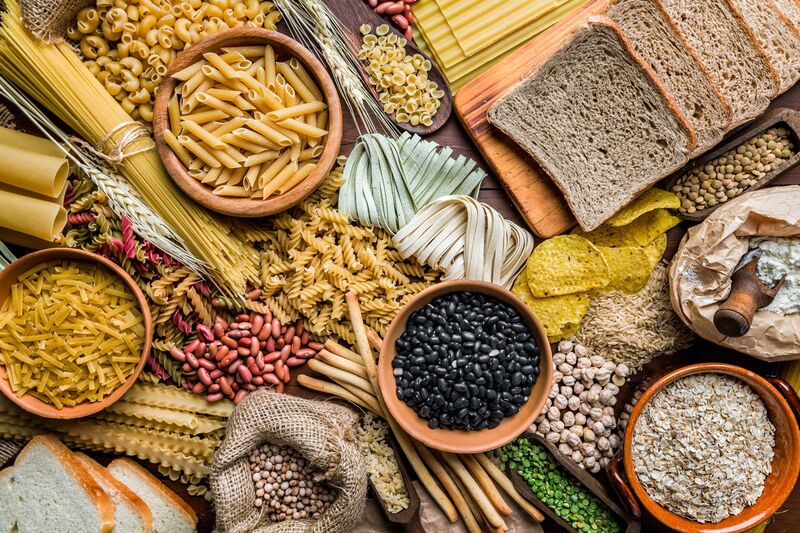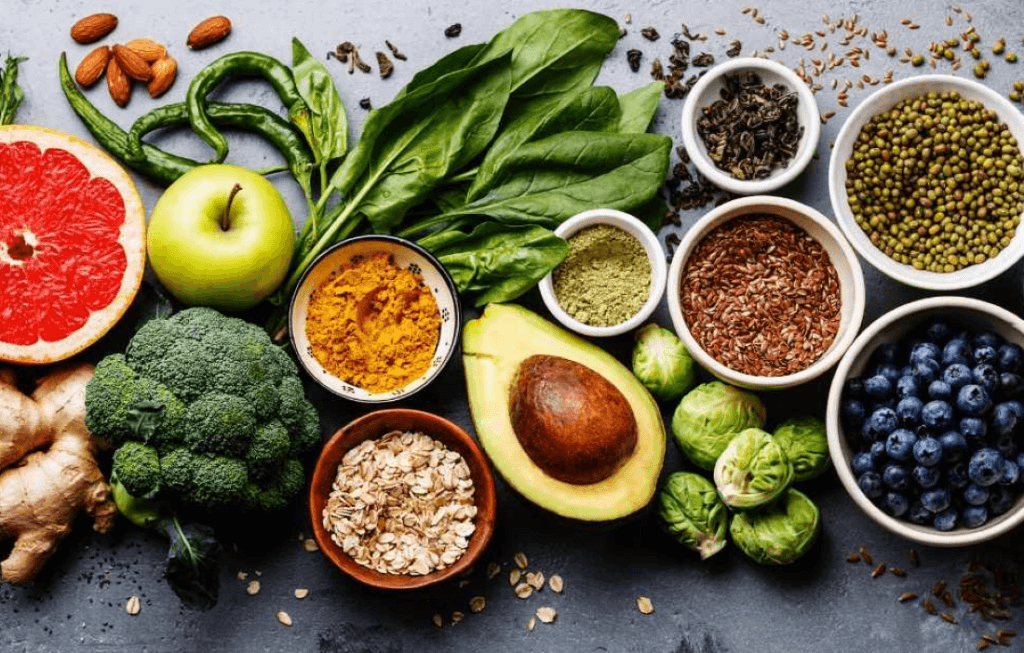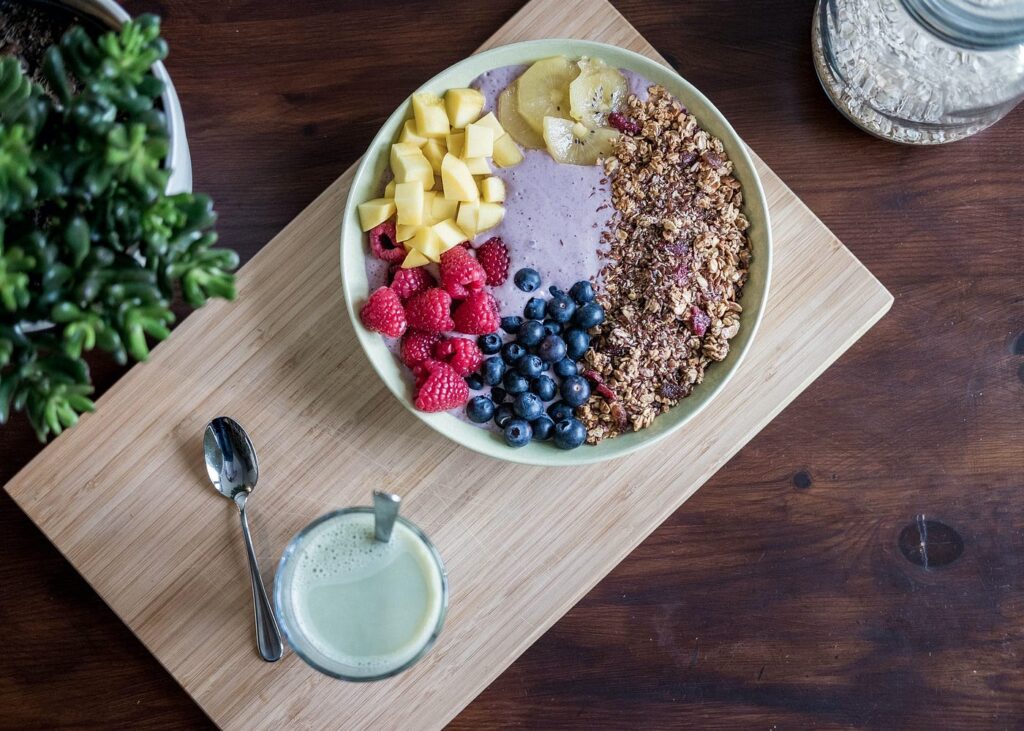Optimizing your performance in swimming is not just about rigorous training; it’s equally crucial to focus on your diet. A well-balanced diet tailored to the needs of swimmers can significantly enhance muscle repair, recovery, and overall performance. This article delves into the essential dietary components that every swimmer should incorporate to maximize their potential in the pool.
Key Takeaways
- Incorporate lean proteins like chicken, fish, and legumes to aid muscle repair and recovery.
- Ensure a steady intake of carbohydrates such as whole grains and starchy vegetables to maintain energy levels.
- Include a variety of fruits and vegetables in your diet to supply vital vitamins and minerals.
- Nuts and seeds are excellent sources of healthy fats and should be a part of your daily nutrition.
- Stay hydrated by drinking fluids before, during, and after training to optimize performance and recovery.
Lean Proteins
Lean proteins are your go-to fuel when it comes to swimming training. Protein intake is vital for muscle repair and growth, especially after those grueling training sessions. Make sure to include a variety of sources like poultry, fish, legumes, and dairy to keep things interesting and nutritious.
Here’s a quick look at some protein-rich foods and their protein content:
| Protein Food (with serving) | Grams of Protein |
|---|---|
| Beef, chicken, fish, pork, or turkey (3oz) | 21 g |
| Cheese (1 stick) | 7 g |
| 2% milk (1 cup) | 7 g |
| Egg (2 eggs) | 14 g |
| Greek yogurt (1 cup) | 17 g |
| Black beans (½ cup cooked) | 7 g |
| Peanut butter (2 tablespoons) | 7 g |
| Tofu (½ cup) | 14 g |
| Cottage cheese (½ cup) | 14 g |
| Nuts and seeds (2 tablespoons) | 7 g |
| Protein bar (varies per brand) | ~20 g |
Remember, it’s not just about the quantity but also the quality of protein. Opt for lean muscle support with choices like chicken, turkey, and fish which are lower in fats but high in essential nutrients.
Carbohydrates
Carbohydrates are essential for swimmers as they are the primary source of fuel for both short bursts and long, endurance-based activities. They should make up about half of your diet to ensure you have the energy to power through your training sessions.

Carbohydrates are essential for swimmers
Simple Carbohydrates
These are quick energy sources, ideal for consumption around swim practices or workouts. Here are some examples:
- Fresh fruit like bananas, grapes, and pineapple
- Fruit juices and smoothies
- White bread
Complex Carbohydrates
For sustained energy, incorporate complex carbohydrates into your meals. These include:
- Whole grains and brown rice
- Sweet potatoes
- Beans
Remember, the right balance of carbohydrates can significantly enhance your swimming performance by maintaining optimal energy levels.
Here’s a quick look at some common carbohydrate sources and their content:
| Carbohydrate food (with serving size) | Grams of Carbohydrates |
|---|---|
| Bread (2 slices) | 30 g |
| Rice (1 cup) | 45 g |
| Popcorn (3 cups) | 15 g |
| Orange juice (1 cup) | 30 g |
| Baked potato (1 medium) | 40 g |
Fruits
Incorporating a variety of fruits into your diet is crucial for swimming training. Fruits are not only refreshing but also packed with essential nutrients that help reduce muscle soreness and keep your energy levels high. Aim to include a mix of different fruits each day to benefit from their diverse range of vitamins, minerals, and antioxidants.
- Bananas and grapes are great for a quick energy boost between races due to their natural sugars and ease of digestion.
- For longer breaks, consider more substantial fruit options like mangoes or mixed fruit salads to replenish your energy stores effectively.
Remember, the goal is to consume about five different fruits daily to keep your body well-fueled and ready for the demands of training and competition.
Vegetables
Vegetables are a powerhouse of nutrients essential for swimmers. They are loaded with vitamins, minerals, and antioxidants that not only help in reducing muscle soreness but also support overall health. Incorporating a variety of vegetables in your diet ensures that you get a broad spectrum of nutrients. Aim to include a mix of different colors and types in your meals to maximize the benefits.

Pro Tip: Choose seasonal vegetables like mixed greens for cost-effectiveness and freshness.
Here’s a simple guide to integrating more vegetables into your meals:
- Breakfast: Add spinach or kale to your omelets or smoothies.
- Lunch: Include a side salad with a variety of colorful vegetables.
- Dinner: Steam or grill vegetables like broccoli, carrots, and bell peppers to accompany your main dish.
- Snacks: Munch on carrot sticks, cherry tomatoes, or cucumber slices between meals to keep your energy levels up.
Nuts
Nuts are a powerhouse of nutrition, packed with essential fats, proteins, and various minerals that are vital for swimmers. They are an excellent source of energy and help in maintaining endurance during long training sessions. Incorporating a variety of nuts into your diet can boost your overall health and performance in the pool.
- Almonds are rich in vitamin E and magnesium.
- Walnuts provide a good amount of omega-3 fatty acids.
- Cashews are a great source of iron and zinc.
Snack on a handful of mixed nuts between meals to keep your energy levels up and support muscle recovery.
Including nuts as part of your balanced nutrition can significantly enhance your swimming performance by providing sustained energy and aiding in muscle repair.
Seeds
Seeds are a powerhouse of nutrition, making them an essential part of a swimmer’s diet. They are packed with essential nutrients like omega-3 fatty acids, fiber, and protein that help in muscle recovery and provide sustained energy. Incorporating a variety of seeds into your diet can optimize your performance by ensuring your body gets all the nutrients it needs.
Here are some top seeds to include:
- Chia seeds: Great for hydration as they absorb water and can help maintain electrolyte balance.
- Flaxseeds: Rich in omega-3 fatty acids, which are crucial for reducing inflammation.
- Pumpkin seeds: A good source of magnesium, which helps in muscle function and recovery.
- Hemp seeds: Provide complete protein, containing all essential amino acids.
Remember, while seeds are beneficial, they should be combined with other nutrient-rich foods to meet the body’s diverse needs during intense training periods.
Whole Grains
Incorporating whole grains into your diet is crucial for maintaining energy levels and supporting recovery during intense swimming training. Whole grains are packed with complex carbohydrates, which provide a slow and steady release of energy, perfect for those long training sessions. Here are some top choices for swimmers:
- Brown rice
- Whole-wheat pasta
- Oats
- Barley
- Quinoa
Choose whole-grain options like brown rice, whole-wheat pasta, and whole-wheat bread when eating the starchier carbs. This will not only fuel your swimming performance but also contribute to your overall health by providing essential nutrients and fiber.
Hydration
Hydration is your secret weapon in the pool, crucial for maintaining optimal performance and ensuring you stay in the game. Even though you’re surrounded by water, it’s easy to forget that your body needs its own supply to function at its best. Here’s why keeping that water bottle handy is a game-changer:
- Before swimming: Pre-loading with fluids helps regulate your body temperature and prepares your muscles and joints for the activity ahead.
- During training: Sipping water regularly helps replace the fluids lost through sweat and keeps your energy levels steady.
- After your swim: Rehydrating is key to recovery. It helps flush out toxins and supports muscle repair.
Remember, your hydration needs can vary based on the intensity of your training and the environment. Always listen to your body and adjust your fluid intake accordingly.
Pre-Swimming Nutrition
When gearing up for a swim, whether it’s a casual practice or a competitive event, what you eat beforehand can significantly impact your performance. Timing is key; aim to eat a high-carbohydrate meal about 2 to 3 hours before diving in. This gives your body enough time to digest and convert the food into energy.

Here are some quick and effective pre-swimming nutrition tips:
- Opt for easily digestible carbs like bananas, oatmeal, or whole grain bread.
- Include a moderate amount of protein to support muscle function, such as yogurt or a small portion of chicken.
- Stay hydrated, but avoid drinking too much right before swimming to prevent feeling bloated.
Remember, the goal is to feel energized, not sluggish. Adjust the timing and portion based on how your body feels during your swim sessions.
By following these guidelines, you’ll be well-prepared to tackle any swim challenge, from the butterfly stroke to endurance laps. Proper nutrition can help you swim faster and more efficiently, enhancing both your technique and stamina.
Personalized Nutrition Plans
When it comes to optimizing your performance in the pool, a one-size-fits-all diet just doesn’t cut it. That’s why personalized nutrition plans are crucial. They consider your individual needs based on factors like training intensity, body composition goals, and even your competition schedule.
Remember, what works for one swimmer may not work for another. Seeking professional advice is essential to develop a nutrition plan that suits your individual circumstances.
Consulting with a sports nutritionist can help you create a meal plan that’s as unique as your swim stroke. They’ll assess your specific needs and tailor a diet that supports your performance and recovery. Here’s a quick look at what you might expect:
- Initial assessment of dietary habits and training schedule
- Analysis of body composition and nutritional needs
- Development of a meal plan including timing and portion sizes
- Ongoing support and adjustments as needed
Following a personalized plan can help you hit your peak performance and maintain it throughout the season.
Unlock your full potential with our ’10. Personalized Nutrition Plans’ designed specifically for swimmers at all levels. Whether you’re just starting out or you’re preparing for a competition, our tailored nutrition strategies can help enhance your performance and recovery. Visit our website to explore how you can optimize your diet to match your swimming goals!
Conclusion
So, there you have it, folks! By embracing a balanced diet, staying hydrated, and timing your meals right, you can truly optimize your performance in the pool. Remember, it’s not just about swimming hard; it’s about fueling smart. Dive into these nutrition strategies, personalize them to fit your training needs, and watch as you glide past your personal bests with more energy and focus. Happy swimming!
Read more: Eating Like a Champion: Exploring the Diet of Michael Phelps
AUTHOR
Sang Nguyen
Sang Nguyen is a former national swimmer for Vietnam who has transitioned into coaching. With a passion for fostering a healthy swimming community and connecting like-minded individuals,......Read More
BLOG
Maybe You Are Interested
Good Swim Meet Snacks: What to Eat for Optimal Performance
Good nutrition is crucial for swimmers to maintain energy, recover quickly, and perform at their...
Read More...Optimizing Your Performance: The Best Diet for Swimming Training
Optimizing your performance in swimming is not just about rigorous training; it’s equally crucial to...
Read More...Achieve Peak Performance with This Diet Chart for Swimmers
Whether you’re a novice or an expert swimmer, understanding the right diet is crucial for...
Read More...Eating Like a Champion: Exploring the Diet of Michael Phelps
Michael Phelps, renowned for his Olympic triumphs, has a diet as extraordinary as his swimming...
Read More...Muscle Gain for Swimmers: Tailoring Your Diet for Strength
Swimming is a demanding sport that requires a tailored approach to nutrition to support muscle...
Read More...A Comprehensive Diet Plan To Gain Weight For Swimmers
Swimming is a demanding sport that requires meticulous attention to nutritional needs to optimize performance,...
Read More...